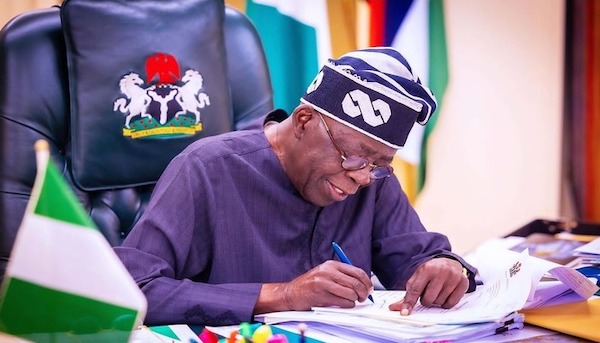How funds saved from the stoppage of subsidy payments are being used – FG

Tinubu
Funds saved from the stoppage of subsidy payments are being used to execute high-impact projects and schemes by the Tinubu Administration, the Information and National Orientation Minister, Mohammed Idris has said.
The projects and schemes, according to Idris, are student loans, physical and digital infrastructure, low-cost consumer credit, agricultural production, and ’targetted’ social investments.
He spoke at the 2024 Annual Conference of the International Press Institute with the theme: ‘Democracy, Media Freedom and the Imperative of Protecting the Nigerian Civic Space,’ in Abuja.
Idris also shed light on the proposed tax reforms, media freedom and protection of Nigeria’s civic space, energy transition, and the judiciary being championed by President Bola Ahmed Tinubu under his administration’s Renewed Hope Agenda.
He said, “Following the removal of petrol subsidy, President Tinubu is gradually guiding Nigeria into an unprecedented energy transition phase, launching a presidential initiative to move the country from fossil fuels to Compressed Natural Gas (CNG) as fuel for vehicles and machinery.
“The ongoing rollout of CNG and associated infrastructure is reducing transportation costs for Nigerians by up to 60 percent, creating jobs, and attracting tens of millions of dollars in local and foreign investment.
The young people of Nigeria now have a clearer path to sustainable tertiary education through the Student Loan (Access to Higher Education) Act 2024, which has established the Nigerian Education Loan Fund (NELFUND).
Complementing this is the Consumer Credit Corporation, established to guarantee access to low-cost and flexible consumer credit.
“In multiple ways, the President is focused on putting more money in the pockets of Nigerians and creating avenues for sustainable prosperity.
The minister insisted that Nigeria was on the verge of fundamental economic reform, anchored on the Renewed Hope Agenda.
He described that agenda as a deliberate and comprehensive recalibration of a long-neglected system geared towards economic diversification, human capital development, infrastructure, innovation, competitiveness, and inclusive growth.
Idris explained that the tax reform initiative was envisioned to simplify Nigeria’s existing tax regimes and make compliance easier, while also reducing tax burden on the most vulnerable Nigerians.
Idris told the conference participants that “a recurring highlight of the reforms is the introduction of several new tax exemptions that will benefit various categories of individuals and businesses.”
He added that reforms would complement broader macroeconomic reforms aimed at driving Nigeria’s economic transformation. These measures, according to him, are foundational elements for building a prosperous and globally competitive Nigeria.
On Student Loan, the Federal Government has okayed a fresh N110 billion for payment of tuition of 120,000 students of public tertiary institutions that applied for loans through NELFUND.
The government introduced the consumer credit scheme to enable Nigerians to have access to funds to purchase locally-made goods on credit.
Five hundred thousand civil servants nationwide are targeted as the first set of beneficiaries of the scheme.
. THE NATION









